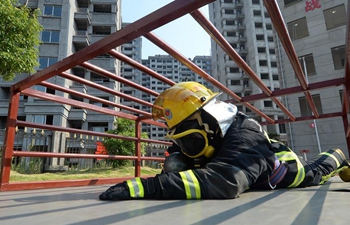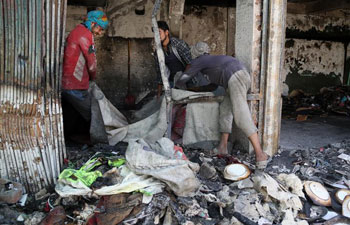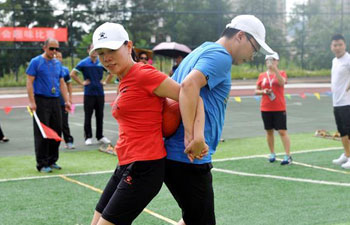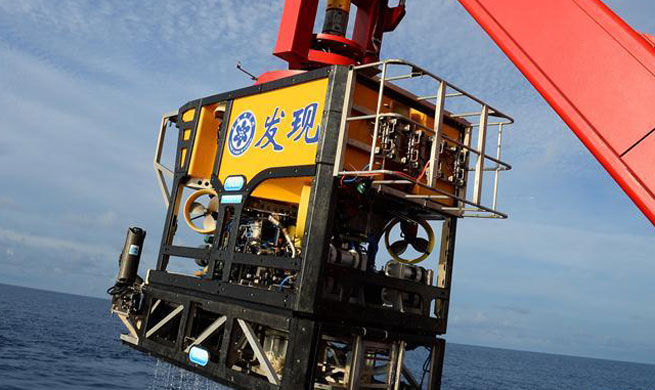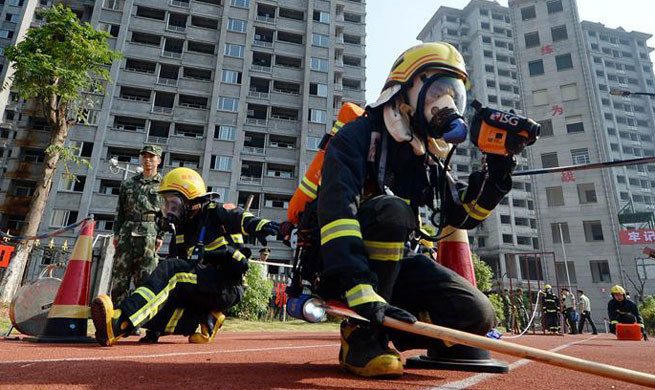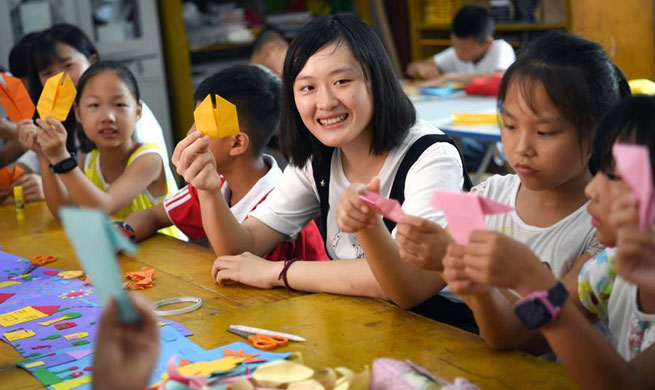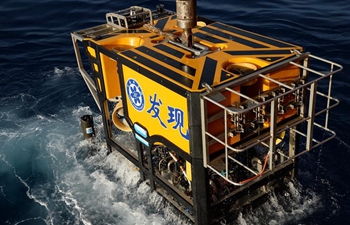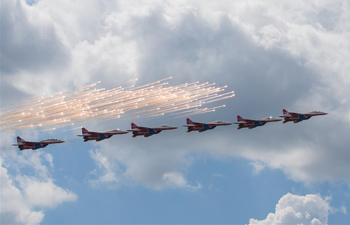PARIS, July 25 (Xinhua) -- Rival leaders from Libya Fayez Al Sarraj, chief of the U.N.-backed government, and Khalifa Haftar, commander of the Libyan National Army, on Tuesday agreed on the need to stop fighting and accelerate action to hold presidential election "as soon as possible."
In a joint statement after a meeting here to build on diplomatic efforts to end instability in Libya, Sarraj and Haftar said they were committed "to a ceasefire and to refrain from any use of armed force for any purpose that does not strictly constitute counter-terrorism, in compliance with the Libyan political agreement and international treaties."
After a year-long political vacuum and civil war, the two leaders vowed to press through a political solution to end the Libyan crisis and which according to them "requires a national reconciliation process involving all Libyans, including the institutional, security and military actors who are prepared to participate peacefully."
To that aim, Sarraj and Haftar called for the disarmament and reintegration of the fighters into the country's forces in a way to build a "lawful military forces ensuring the defense of the Libyan territory."
"We solemnly commit to work towards the holding of presidential and parliamentary election as soon as possible as from July 25 in cooperation with the relevant institutions and with the support and under the supervision of the United Nations," they pledged.
Furthermore, they promised further efforts to establish "a sovereign, civilian and democratic Libya" that respects law, human rights and guarantee peaceful transfer of power.
Starting work in March 2016, Sarraj's government is struggling to project authority after Haftar's rival administration, based east of Libya, refused to recognize it.
The meeting of Libya's two rival governments, the second in three months "aims to foster sustained and inclusive inter-Libyan dialogue in which all actors in good faith have a role to play," French President Emmanuel Macron's office said.
Since the 2011 uprising to oust former leader Muammar Gaddafi, Libya has plunged into chaotic violence and political instability which has helped terrorist cells flourish and put the security of the Maghreb region at risk, according to analysts.





